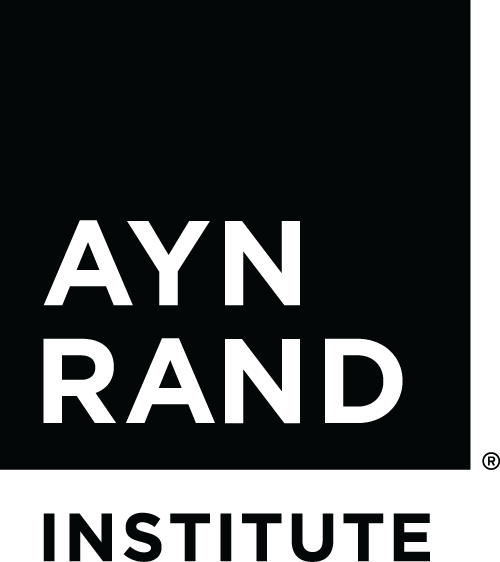Program Highlights
ARU experience day mini-courses
Go behind the scenes at Ayn Rand University and deepen your understanding of Objectivism by choosing one of three mini-courses.
Objectivism Through Ayn Rand’s Fiction
Ayn Rand’s major novels, The Fountainhead and Atlas Shrugged, are self-consciously philosophical novels, containing abstract themes, characters driven by opposing moral principles, and conflicts rooted in clashing worldviews. And more than that, Rand’s fictional heroes discover and embody new philosophical ideas, original to Rand. To begin to understand Rand’s distinctive worldview and to learn her new philosophy, Objectivism, there is no better place to start than with careful consideration of the content and meaning of her novels. Participants should have read all four of Ayn Rand’s major fiction works before attending. This mini-course is based on the full-length Ayn Rand University course of the same name.
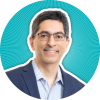
Dr. Onkar Ghate
Ayn Rand Institute
Foundations of Physical Science: Astronomical Observations
This mini-course is based on the full-length Ayn Rand University course called “Foundations of Physical Science: Motion and Gravitation.” The full course traces the development of man’s understanding of motion and gravitation, starting with the earliest astronomical observations of pre-Greek civilizations, and culminating in the achievements of Isaac Newton.
This mini-course will focus on the observational starting points: the observed facts about the movements of the stars, planets, sun, and moon that gave rise to the first attempts to identify their natures and explain their motions.

Dr. Keith Lockitch
Vice President of Education,
Ayn Rand Institute
Ayn Rand, a Philosopher Who Lived on Earth
Ayn Rand (1905–1982) wrote best-selling novels that have never been out of print, and seven collections of essays that explain and explore the principles and applications of her philosophy. The essence of Objectivism, she said, “is the concept of man as a heroic being, with his own happiness as the moral purpose of his life, with productive achievement as his noblest activity, and reason as his only absolute.” These ideas are evident throughout her life and her body of work.
This biographical mini-course, which includes information that has never before been made public, examines the development of her philosophy through the course of her colorful life, including a Russian childhood blighted by the Bolshevik Revolution; her experiences as a Broadway playwright, Hollywood screenwriter, and political campaigner; the composition of her best-selling books; her world-renown as a lecturer and writer on her system of thought, and a wide range of friends and admirers.
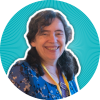
Dr. Shoshana Milgram
Associate Professor of English, Virginia Tech
Featured Talks
Living Objectively—Integrating Objectivity Into Your Every Day

Dr. Tara Smith
Professor of Philosophy, University of Texas at Austin
Telling Right from Wrong
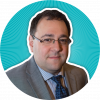
Dr. Gregory Salmieri
Senior Scholar of Philosophy,
Salem Center
How to Be an Earthly Idealist

Don Watkins
Director of ARU Coaching and Mentoring, Ayn Rand Institute
Many are attracted to Objectivism for its idealism. But they often struggle to successfully use Objectivism as a guide for living on earth, and experience its ideals as a source of frustration, confusion, and guilt. In this talk, Don Watkins draws on his experience as Ayn Rand University’s Director of Coaching and Mentoring to discuss what gives rise to this problem—and practical strategies for overcoming it.
Miami (and More)

Dr. Shoshana Milgam
Associate Professor of English, Virginia Tech
Ayn Rand admired Mickey Spillane as a writer and a crusader: “a brilliant literary talent” and a “moral absolutist.” Several of his novels, including the two-book series about Morgan the Raider (a pirate with an enigmatic past and mysterious motivations) were set partially or completely in Miami. One character, amazed at his first glimpse of the homes and hotels of the Miami skyline, asks: “How could men with their bare hands build such a place?” This talk, in addition to describing the stories and settings of Spillane’s Miami novels, will include new information about his life and parallels between his writing and the work of writers he admired, including Alexandre Dumas and Ayn Rand, whom he considered a personal friend.
Objective Confidence

Jean Moroney
President of Thinking Directions
An important component of happiness is confidence in your future success. How is such confidence possible, especially with ambitious goals that involve significant risks? In this talk, Ms. Moroney will discuss how the Objectivist ethics and epistemology help you establish objective confidence that you will be successful. A companion to her previous talk, Happiness, this will be a self-contained discussion of topics including: How to conceptualize ambitious goals to foster creativity; the need for objective self-awareness of your knowledge, values, and skills; and how rationally to deal with mistakes, setbacks, and failures.
Our Freedom of Speech

Peter Schwartz
Distinguished Fellow, Ayn Rand Institute
Freedom of speech used to be an unquestioned value. Even as society endorsed the use of force in other realms, the individual’s right to express ideas freely was widely acknowledged. Today, that right is coming under increasing attack. Why? And what can we do to counter this ominous threat? Mr. Schwartz discusses the fundamental relation between force and the mind—and examines the modern philosophic premise that, by blurring the distinction between thought and action, leads to the suppression of free speech.

Dr. Dan Schwartz
Visiting Fellow, Ayn Rand Institute
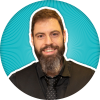
Dr. Nikos Sotirakopoulos
Director of ARI Global, Ayn Rand Institute
When it comes to Israel’s mortal enemies, the usual suspects are Arab authoritarian regimes, Iran, and the antisemitic far right. And yet, some of the most dangerous wannabe-destroyers of Israel have come from the left. Whether it has been communist states, or terrorist groups, or “peaceful” organizations’, the left’s war on Israel has been long and determined.
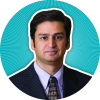
Dr. Amesh Adalja
Board-certified physician in infectious disease
In this lecture Dr. Adalja will provide a history of public health as a field, from the Black Death to COVID to the present. The aim of the lecture will be to illustrate how the field evolved and grew from its legitimate core functions of communicable-disease control to an all-encompassing focus on population health and collective outcomes.
Social Activities and Community
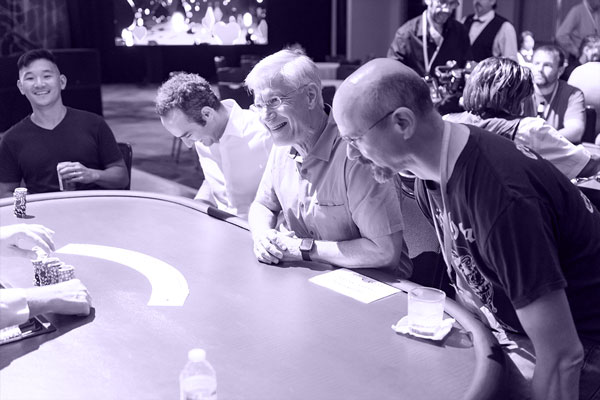
Third Annual OCON Poker Championship Tournament

Salsa Lessons
In honor of this year’s location, learn to salsa early in the week, and then dance the night away with Latin music on
July 4 and at our closing reception.
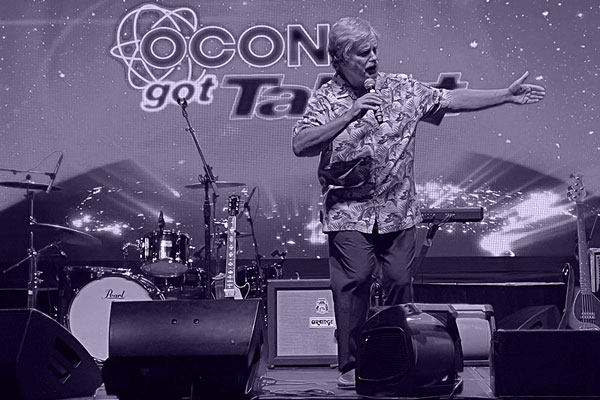
OCON’s Got Talent
Announcing the return of the fan-favorite talent show!

Celebrate Independence Day with a Miami-style party.
